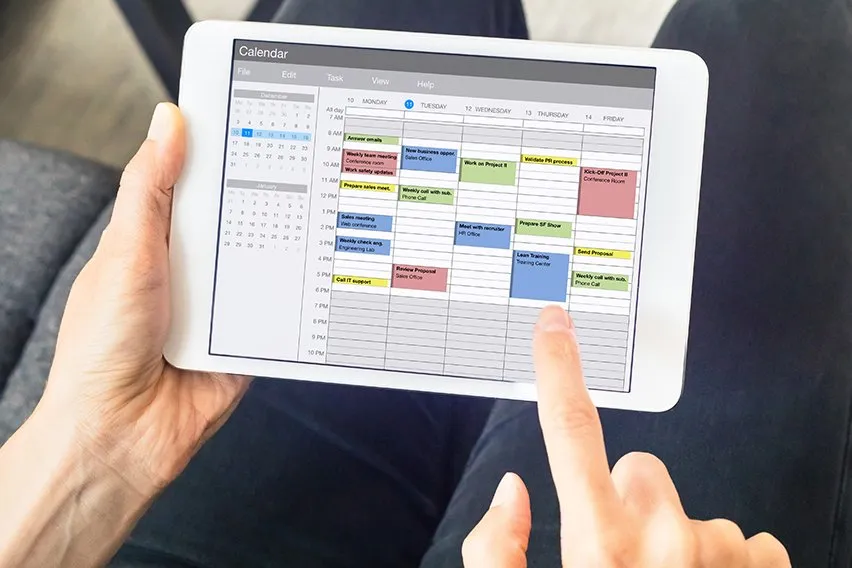Long Working Hours: 9 Effects Of Overtime

Everyone would stop wearing long working hours as a badge of honor if they knew these dramatic effects! Learn more.
Can you name an entrepreneurial colleague or friend with standard working hours? Me neither. Long work hours are an epidemic in the business owner community. It’s so common to hear about average working hours of 60-80 hour weeks with few holidays.
The effects of overtime far outweigh the potential gain of staying a few extra hours in the office. Not only does it impact your social life, but it could also impact your health. Think anxiety symptoms at best and coronary heart disease at worst.
Learn more about how long working hours could be affecting you and your employees.
Here’s What We’ll Cover:
What Is Considered Overtime?
First, what is the definition of overtime? Well, it depends on who you ask. The Fair Labor Standards Act (FLSA) states that an employee is due overtime pay if they work over 40 hours per week. This only applies to employees with the following criteria:
- They earn less than $684 a week/$35,658 per year
- They are not working administrative, executive, STEM and professional jobs
- They are (normally) hourly

1. Increased risk of heart disease and stroke
A study conducted by the World Health Organization shows that long work hours has a causal effect on health. Specifically, the WHO study claims that 745000 deaths in 2016 were caused by working too much. They conducted a systematic review and meta-analysis of previous studies with thousands of participants. The studies had participants at each level of socioeconomic status. That means those with blue-collar occupations, pink-collar occupations and white-collar occupations were all represented. They collated data from 2 studies of Ischemic Heart Disease and 22 studies on stroke. They found that you are at an increased risk of both of these ailments if you consistently work long hours. They found that work-related disease burden is more prevalent in men. The magic number was 55 weekly working hours. Working more than 55 hours a week leads to a 35% higher risk of stroke and a 17% higher risk of cardiovascular heart diseases. 55 hours is still higher than standard working hours. This was a collaborative meta-analysis of prospective cohort studies. As they used individual participant data, they had to acknowledge that jobs at different levels of socioeconomic status make it difficult for some to work standard hours.
There has also been researched into other ailments. These include respiratory disease, cerebrovascular diseases and the risk of breast cancer.
Individual-Participant-Data Meta-analysis of these studies shows some correlation. It’s not as strong as the findings with cardiovascular disease and job strain.
2. Higher stress levels
You could say that point 1 is because of point 2, but it’s not as simple as that. Long weekly working hours increase stress levels because of the strain in lifestyle. Most people work late because of overwhelming workloads. That takes a mental toll on us. From there, a cascade of stress develops. The job strain is too much so you stay late. Staying late makes you skip activities that would ordinarily destress you. This could be family time, exercise, healthy food or recreational activities. So not only does excessive workloads cause stress, but it also stops you from relieving that stress.
3. Increased safety risks
Being under pressure can make you a little sloppier than usual. It could be to do with sleep deprivation. Spending extra time in the office increases weekly working hours which has to be accounted for somewhere. Or simply the stress of job strain makes your brain a little frazzled. We’ve all been there! Driving or operating heavy machinery during these intense work periods is a risk to your physiological health. There’s a higher chance of a workplace accident or road accident when you’re in this state.
4. Increased fatigue
Those long hours have to come from somewhere! It could be that you’re purposefully waking up early to get a head start on your to-do list. Maybe you are doing all-nighters during, particularly busy work periods. This all leads to sleep deprivation.
Sleep deprivation is a sinkhole. Once your body clock is out of sync, it raises your stress levels. There are also personal care effects to sleep deprivation. Poor driving habits. Poor eating habits. Grumpiness and excessive fatigue. The perfect cocktail for poor performance.
5. Reduced productivity
Speaking of poor performance, this might be the most devastating effect on the list. Yes, more devastating than the increased risk of stroke. Why? Well, you are working overtime to get things done. But what if in your overworked state, you aren’t even completing your tasks.
Or worse, your productivity overall is impacted. So your performance and productivity is worse than with regular work hours.
There’s nothing worse than realizing that the extra hours you are putting in are ultimately a complete waste.
Instead focussing on optimizing standard hours during the week is a better policy overall.
6. Reduced social life
If you are working overtime, you have less time to sleep and less time to have fun. Your personal life is a vital human need. The need to interact with friends and family. The need to let loose with a recreational activity that brings you joy. The need to have something in life that keeps you going outside of work. It’s no secret that having an active social life lowers your stress levels and raises self-esteem. By working long hours for long periods of time, you are impacting your mental health immensely.
7. Elevated risk of obesity
You have less time to exercise when you’re working late consistently. Are you getting your recommended 30 mins of activity per day at your desk? How often are you up and moving in between the 10+ hours per day you’re working?
With physical inactivity, there is an increase in risk of obesity.
These are important questions to analyze. Regular exercise has a huge effect on your physical and mental health. That you already know. It also increases your focus and productivity. We normally get rid of exercise habits when we are working excessively. But we are doing a disservice to ourselves.

8. Increased dependency on alcohol and cigarettes
Studies show that people who consistently work long hours are more prone to excessive alcohol and drug use. It may not be the illicit substances you indulge in. It could be any kind of vice. Binge eating. Overspending. Cigarettes and vaping. All unhealthy habits resurface with too much overtime.
9. Higher risk of burnout
At the heart of it all lies the big bad – burnout. Burnout is a subset of temporary mood disorders. Many describe it like a type of depression. And that makes sense – burnout is very similar to depressive symptoms. You feel fatigued and stressed. You feel dissatisfied with your work. You are more irritable and frustrated during your day-to-day life. It’s incredibly subtle, which is why many of us skate through burnout without noticing. We could be burnt out for months and months, progressively getting worse. At some point, it can dip into full-blown major depression symptoms.
Once you hit burnout, it takes a huge amount of effort to climb out of it.
Key Takeaways
Overtime is normalized for small business owners. As Dr Maria Neira, Director, Department of Environment, Climate Change and Health, at the WHO says “Working 55 hours or more per week is a serious health hazard.”
This article is not to say that you should only do average working hours or you’ll suffer from Coronary Heart Disease. Well… we’re not only saying that. Life is rarely so perfect.
What we’re saying is to monitor your working hours diligently so you don’t fall into bad working patterns. You can’t perform at your best if these effects take hold. Plus cardiovascular disease is not fun. Prioritize your mental and physical wellbeing so you can continue to create your best work!
For more guides like this one, head to our resource hub.
RELATED ARTICLES


 Efficiency Vs Productivity: What’s the Difference?
Efficiency Vs Productivity: What’s the Difference? 4 Best Timekeeper Software for Time Tracking
4 Best Timekeeper Software for Time Tracking How to Track Volunteer Hours and Log Time
How to Track Volunteer Hours and Log Time How to Control Time: 5 Ways to Improve Productivity
How to Control Time: 5 Ways to Improve Productivity How to Work 12 Hours a Day: Tips & Ways
How to Work 12 Hours a Day: Tips & Ways Top 4 Best Online Memo Maker Software
Top 4 Best Online Memo Maker Software